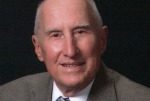In this article we’ll start to look at Muhammad’s life and teachings. These articles won’t be all encompassing in terms of covering all of Islam’s tenets, but they will cover the main tenets and how those changed over time. But first a little bit about the sources for this information. As Muhammad was born relatively recently, compared to the founders of other major religions, one might think that there are relatively more works written about him, his life, and his teachings. However, that is not the case. Instead we only know about him from Islamic sources, and we will look at those resources themselves later on. For these articles on his life and teachings, we will use the following two sources: a book on the meaning of the Qur’an, and one of the sirats – the biographies of Muhammad’s life. The specific works that will be used are M. Pickthall’s The Meaning of the Glorious Qur’an, and A. Guillaume’s translation of Ibn Ishaq’s Sirat Rasul Allah. It is important that another text such as the sirat be used in conjunction with the Qur’an in order to provide context for its verses.
It is a generally held belief among traditional Muslims that the Qur’an cannot be translated from Arabic into another language, but this is problematic as most of the world’s Muslim population does not speak Arabic. Pickthall’s original writing has been revised and is generally accepted by Muslims as providing an accurate literal translation of the Qur’an. Ibn Ishaq’s sirat is one of the earliest and most comprehensive biographies of Muhammad’s life. The version that we have today comes from copies of his work that were later edited by Ibn Hisham and Al-Tabari. Even though these works are Islamic sources, they are still quite revealing regarding Islam’s basic tenets and their evolution. However, they must somewhat be taken with a grain of salt. Even Ibn Ishaq used phrases such as ‘it is alleged’ and ‘only God knows the truth’ in describing some events within his biography.
Muhammad’s Early Life
There is very little known about Muhammad’s early life. He is thought to have been born about 570 AD within the Hashim clan of the Quraysh tribe. Muhammad’s father was named ‘Abdullah (meaning ‘servant of Allah’ or ‘slave of Allah’), and he died before Muhammad was born. Muhammad lived the first few years of his life with his mother, Amina, and his grandfather. His mother died when he was six, and his grandfather died two years later. After the death of his grandfather, one of Muhammad’s uncles named Abu Talib, became his guardian. Abu Talib was apparently fond of Muhammad and took good care of him. The sirat says that Muhammad went on at least one caravan to Syria with his uncle, and that while he was in Syria he met a monk named Bahira. It is said that this monk identified Muhammad as being a prophet of his people, but no documentation exists for this claim outside of Islam.
Very little else is known about his youth until he married his first wife Khadija, when he was about twenty five years of age. She was the mother of all of Muhammad’s children but one, but only his daughters lived into adulthood. Khadija was also a distant cousin of Muhammad, a not uncommon occurrence in the Arab or other cultures of that period, and to also be one of the best born women of Mecca. She was apparently a very wealthy widow, and used to hire men for her caravans. She hired Muhammad to sell her goods, and purchase other goods to bring back to Mecca to sell. It is said that she doubled the value of the property that she had entrusted to Muhammad. She proposed marriage to Muhammad, and he accepted. During her lifetime, Muhammad had no other wives.
Islam’s Development in Mecca
Muhammad received his first vision in 610 at about the age of forty. He had taken to withdrawing for extended periods of solitary contemplation during the month of Ramadan, a practice performed by many Arabs during this period. The sirat says that the angel Gabriel came to him in a vision while he slept and demanded that Muhammad read some writing that was presented to him. Further, that Muhammad did not initially believe the vision, but instead thought that he had either become a poet or was possessed, both of which were often viewed within his culture as being not in their right mind. He also thought initially that he had been visited by a demon. He sought to take his own life but was barred from doing so by the vision. His wife Khadija and her cousin Waraqa convinced Muhammad that his vision was real after he returned home.
Muhammad did not preach publicly for three years after this first vision. During that time about two dozen converted to Islam, most from Mecca’s lower social classes. They initially prayed together in seclusion. The Quraysh did not ‘withdraw or turn against’ Muhammad until he began to speak against their gods. Hostility grew between the people of Mecca and Muhammad and his followers. Muhammad’s uncle, Abu Talib, protected him from harm, but Muhammad was subject to many insults. Muhammad was offered money, honor, sovereignty, and the opportunity to be cured from his ghost in attempts to heal the rift within the community. He refused. He was then asked to perform a miracle. He stated that was not his purpose. These were offered to him by the Quraysh in order that they might know that Muhammad’s position as a prophet was truthful, that he might take something for himself so they would know his superiority over them, and finally that he might hasten the punishment against them that he had been frightening them with.
The persecution of Muhammad’s followers became so bad that about 83 men and their families migrated to Abyssinia, where they stayed for a number of years. The sirat says that Muhammad became very concerned about the divide between the people of Mecca. After a period of meditation, he received what are referred to as the Satanic verses. The three entities referred to in this revelation are the daughters of the pagan god Hubal.
‘By the star when it sets your comrade errs not and is not deceived, he speaks not from his own desire. Have you thought of al-Lat and al-Uzza and Manat the third, the other, these are the exalted Charaniq (exalted birds) whose intercession is approved.’
This revelation temporarily healed the rift between Muhammad and those who did not follow his teachings. It was at this time that his followers returned from Abyssinia after hearing that the rift in the community had been healed. The above revelation was shortly abrogated by another that annulled what Satan had suggested. At this time the persecution of Muhammad’s followers grew even more intense.
Sometime later Muhammad spoke of being taken on a night journey to Jerusalem while he slept. From there he was taken through the seven heavens where he met Adam and many of the prophets, including Abraham, Moses, and Jesus. Muhammad related his experience to the people of Mecca, and it is said that many of them did not believe him. It is also said that some of his followers left Islam after hearing the story.
Two additional events occurred a short time later in about 619, both his wife Khadija and Abu Talib died in the same year. With his protection and closest support gone, Muhammad began to offer his teachings at the fairs to the people. In 621 a delegation came to Mecca from Medina during the fair and learned Islam from Muhammad. They were from the Ansar clan. A larger group returned the following year and offered him protection. They wished to have him arbitrate the feuds in Medina. It was after receiving the offer of assistance from the Medinan delegation that Muhammad received a revelation giving him permission to fight against those who wronged him and treated him badly.
With his uncle Abu Talib gone, and his replacement by another uncle what was not as supportive, clan support became undependable. His followers began to emigrate from Mecca to Medina in about 622.
Islam’s Early Teachings
- Up to this time the main tenets of Islam were as follows:
- Worship Allah alone
- Pray towards Jerusalem
- Peace, to each their religion
- Care for the widows, orphans, and the needy
- There will be a day of judgment
- Muhammad was the last in the line of prophets that began with Moses
By this time the five pillars of Islam were also being taught. These are: the shahada (creed of belief), salat (prayer), zakat (alms), swam (fast during the month of Ramadan), and the hajj (pilgrimage to Mecca). That is where we will end this article; the next article will go through the changes in Islam’s tenets once Muhammad reached Medina. Finally, here is an approximate timeline that includes the significant events occurring during Muhammad’s life.
DOWNLOAD PDF
 Author and speaker, Dan Wolf, is gifted at gathering facts about contemporary subjects and sharing information in a manner that is easy to read and understand. Dan will be posting both historical and current information about Islam and Sharia on the VCA website.
Author and speaker, Dan Wolf, is gifted at gathering facts about contemporary subjects and sharing information in a manner that is easy to read and understand. Dan will be posting both historical and current information about Islam and Sharia on the VCA website.




